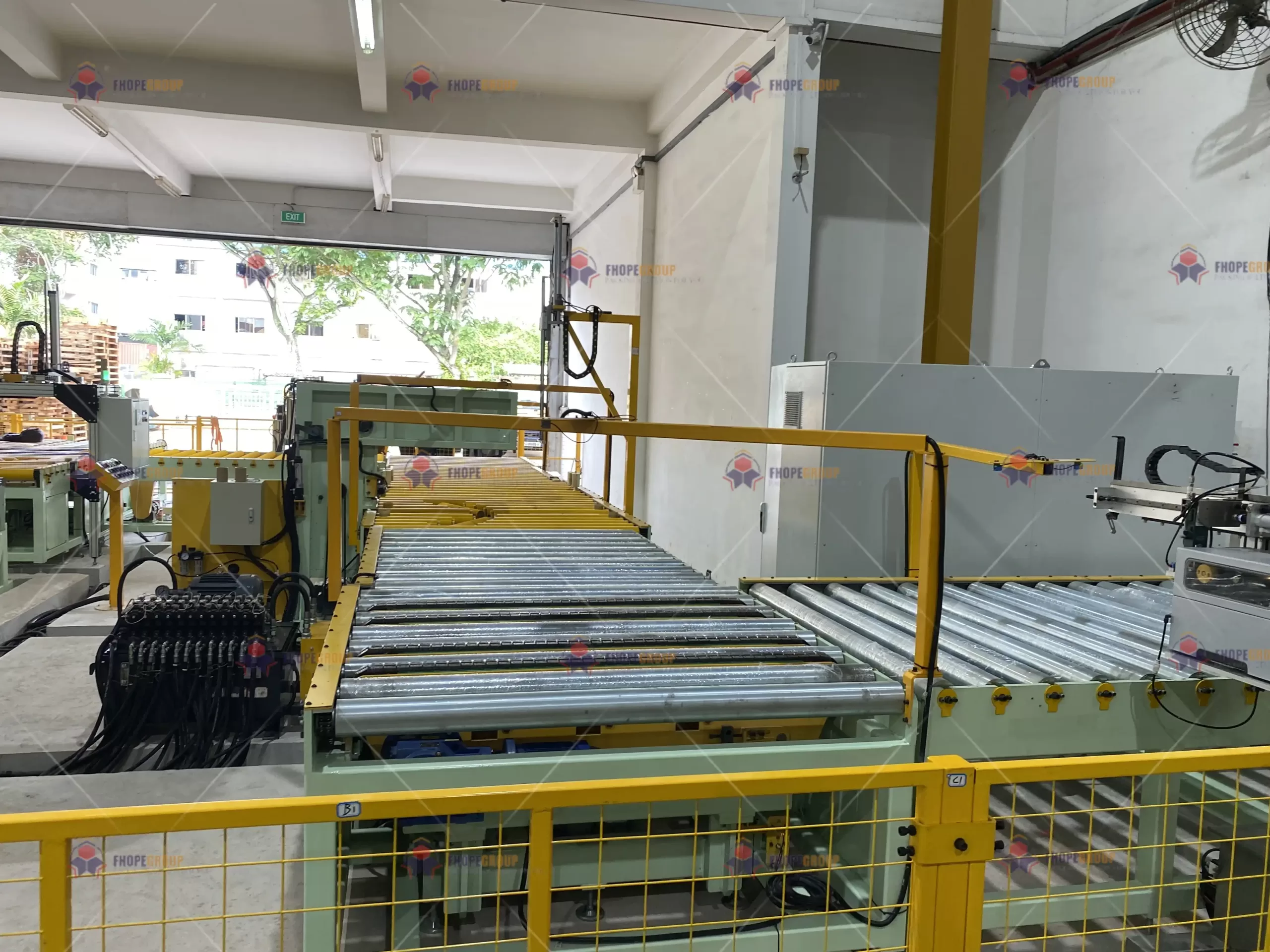What Makes a Steel Coil Wrapping Machine an Essential Tool for Modern Packaging?
Steel coil packaging is challenging. Manual methods are time-consuming and inconsistent. Damaged coils hurt your bottom line. A reliable wrapping machine can solve all these problems fast.
A steel coil wrapping machine is essential because it automates the packaging process, protects the coil surface, and increases handling efficiency. It saves labor, prevents damage, and ensures consistent quality.
The demand for high-efficiency and damage-free packaging is rising in industries like steel, aluminum, and copper. That’s why many manufacturers are shifting to automated coil wrapping systems. Let’s explore what makes these machines a smart investment.
How Does a Steel Coil Wrapping Machine Work?
Manual packaging takes time, labor, and often leads to inconsistent results. If coils are not wrapped correctly, they can rust, scratch, or deform during handling.
A steel coil wrapping machine wraps the coil through the eye with stretch film or other materials, securing the surface and edges tightly. The process is automated and customizable.
Understanding the Wrapping Process Step by Step
The steel coil wrapping machine is designed to handle heavy and large-diameter coils. It uses a rotating ring mechanism to guide the packing material through the eye of the coil. Here’s how it works:
Process Breakdown
| Step | Description |
|---|---|
| 1 | Coil is placed on the wrapping station, often by crane or conveyor |
| 2 | Sensors detect coil dimensions and adjust wrapping settings |
| 3 | Wrapping head rotates through the eye of the coil while feeding the packaging material |
| 4 | Material overlaps at defined tension to ensure protection |
| 5 | Machine cuts the film and completes the cycle automatically |
This method is repeatable and safe. It removes operator error and reduces waste. Some models also integrate with coil lines for inline operations, boosting efficiency.
What Materials Can Be Used in Steel Coil Wrapping?
Different coils need different types of protection. Using the wrong material can cause damage during storage or transit.
Steel coil wrapping machines can use various materials like stretch film, woven tape, paper, or VCI film depending on protection needs. The material is chosen based on the coil type and storage environment.
Matching Material Type to Coil Requirement
Each wrapping material serves a specific purpose. Some offer water resistance, others offer corrosion protection. Here’s a comparison to help understand:
Common Wrapping Materials
| Material Type | Protection Offered | Best Used For |
|---|---|---|
| Stretch Film | Basic dust and moisture protection | General-purpose steel coils |
| Woven Tape | Surface protection and impact resistance | Slit coils or sharp-edged coils |
| VCI Film | Anti-corrosion for long-term storage | Exported or stored coils |
| Kraft Paper | Breathable surface barrier | Coils stored indoors |
The choice of material affects cost, efficiency, and durability. A smart machine allows easy switching between materials and custom tension control, improving packaging flexibility.
Why Is Automation Important in Steel Coil Packaging?
Handling heavy coils manually is dangerous and inefficient. Errors in packaging can lead to huge losses due to product rejection or claims.
Automation in steel coil wrapping reduces labor risks, improves packing speed, and ensures consistent protection. It also enables data integration for traceability and maintenance.
The Value of Automation in Heavy-Duty Packing
An automated coil wrapping machine improves the overall workflow in a production line. It reduces dependence on skilled labor and minimizes downtime.
Key Benefits of Automation
| Feature | Benefit |
|---|---|
| Programmable settings | Repeatable quality and faster setup |
| Sensor-based control | Adapts to different coil sizes automatically |
| Safety interlocks | Prevents injury during operation |
| Integration-ready | Connects with conveyors and ERP systems |
I remember when we first replaced manual packaging with an automated machine in our workshop. The difference was obvious in just a week. Downtime dropped. Complaints about coil damage disappeared. That was the moment I understood how crucial automation is in packaging.
Conclusion
Steel coil wrapping machines are not just machines—they’re smart tools built for efficiency, safety, and consistent performance. They eliminate human error, reduce labor costs, and protect high-value materials. If you’re handling slit coils, aluminum, or copper products, investing in automated wrapping solutions is a decision that pays off quickly.
At FHOPEPACK, we’ve seen how the right wrapping solution can transform a packaging line. If you’re unsure about the right setup for your coils, reach out. We’ll help you design a system tailored to your exact needs.

